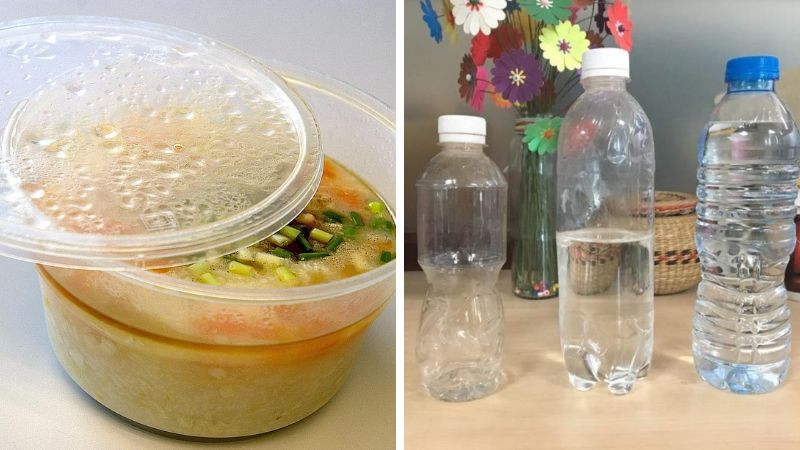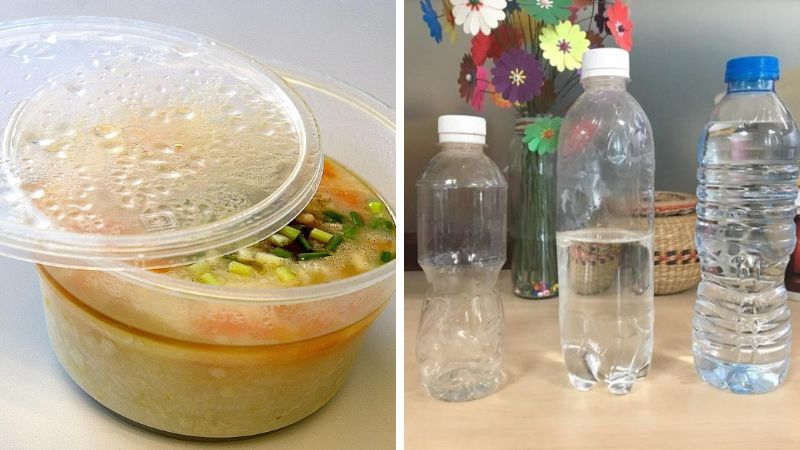The Dangers of Plastic Food Containers on Our Health
In today’s society, there is growing concern about the potential dangers associated with the use of plastic food containers. These everyday products have been found to introduce harmful chemicals into our bodies, leading to a range of dangerous diseases. In this article, we will explore the consequences of regular plastic food container use on weight gain and shed light on this important health issue.
Risk of Weight Gain Linked to Use of Plastic Food Containers
A recent study conducted by researchers at the University of Science and Technology in Norway has revealed that common plastic products, including cups, water bottles, packages, plastic wraps, and foam, contain an alarming number of chemicals. It is estimated that there are up to 55,000 different substances in these products. Among these chemicals, 11 have been identified as metabolic disorder chemicals that have detrimental effects on the body’s ability to regulate weight, ultimately leading to uncontrolled weight gain. Phthalates and bisphenol, widely used in the production of plastics, are the main culprits behind this issue. These findings highlight the potential dangers associated with everyday plastic products and emphasize the need for further research and regulation in this area.
The Damaging Effects of Plastics on Health
Plastics are derived from chemical compounds found in fossil fuels, which are then refined alongside various other harmful chemicals. This refining process ensures that plastics possess water resistance and versatility in numerous applications. However, some plastics, such as PETE (1), PVC (3), LDPE (4), and PS (6), often contain toxic substances like BPS that can cause intoxication, cancer, and increase the risk of disease. Research conducted at McGill University has shown that BPS, a commonly used chemical found in product labels, can permeate packaged foods and lead to the development of cancer and obesity in individuals.
3 Tips for Safe Use of Plastic Products
- Avoid using plastic containers for storing hot or oily food, as this can cause the plastic to become unstable and release harmful chemicals.
- Use reusable plastic food containers that can withstand temperatures from 130-170 degrees Celsius. These containers are designed to be used multiple times, making them a more sustainable choice.
- Reduce your use of disposable plastic bottles and thin plastic containers made of PETE to help minimize environmental impact.

In conclusion, it is crucial to be aware of the potential risks associated with using plastic food containers. By following these tips and being mindful of the materials we use, we can protect our health and make more sustainable choices.
Health Outcomes’>Exploring the Connection Between Marriage and Health Outcomes
What You Need to Know About Chocolate
Despite its tasty flavor, there are long-standing concerns that eating too much chocolate may lead to weight gain and tooth decay. Despite this, chocolate continues to be a popular indulgence during holidays and a meaningful gift to share with loved ones. It is also a popular ingredient for beauty treatments.
“Learning How to Take Control of Your Weight Gain”
Are you unsure how to gain weight in a healthy or speedy manner? The internet contains a wealth of information on the topic, rendering it hard to choose the ideal approach. To help you make the right decision, this article will provide an overview of the best foods to aid you in reaching your objectives.



































